Der US-Bürger und ehemalige Sportlehrer Mike Brennan wurde 2009 in Wien von Undercover-Polizisten in Zivil für einen Drogendealer gehalten, angegriffen und schwer verletzt. Wir haben den 46-Jährigen in Miami angerufen, um mit ihm über seine Erfahrungen zu sprechen.
Could you start off by explaining what exactly happened to you in Vienna in 2009?
I was working as a PE teacher at the Vienna International School and I was coming from work one day and I took the U4 in the direction of Spittelau. When I got on the U4, there were two black males on the train, sitting apart from each other. When the train got to Friedensbrücke two white males got on and they sat down close to them. I knew that something was going on, something didn’t look right, it was weird to me. I was on the phone with my girlfriend and I was saying to her “Something’s going on on this train, I’m trying to get away from whatever these guys are doing.” I got off the train as soon as the doors opened. I was looking to the right and when I turned to the left, I got hit by some unknown person. It was like a crackback in football, I didn’t see it coming. So this guy was running at full speed, I fell to the ground, he was on top of me. I didn’t know what was going on, I just felt my head hitting the concrete and then I felt punches in my face. So basically, I was being attacked by some unknown person who didn’t identify themself. When I tried to put my hands up to defend myself, another guy came, jumped in and held my arm down. So now there’s two men on me, attacking me. Then my girlfriend at the time came and tried to pull one of the guys off and he pushed her across the platform. She asked them who they were and kept saying she’s gonna call the police. They pulled me up from the ground and I stood up. I kept saying “Take me to the embassy”. Suddenly I felt this pain shoot down my back and fell back to the ground. One of the guys had my backpack and was going through it and when he saw my Vienna International School ID he just disappeared. The other guy took about ten minutes until he identified himself. My girlfriend was on the phone with the police and he flashed his police ID in her face very fast for like a second and then put it away again. The entire time I didn’t know they were police officers. I was in pain on the ground and the police officer didn’t even call the ambulance for me, someone else did. He even told someone to go away, who said he was a doctor and could help me. After a while the ambulance arrived and I went to the hospital. I was told later that the policemen were looking for someone and that person was on the same train as me. I was attacked just because I was a black male and the person they were looking for was also a black male. They didn’t look anything like me, we weren’t wearing the same clothes.
The police officer was initially sentenced to a fine of 2800 Euros, which was then reduced to 1680 Euros. Do you think this is a fair verdict?
There were three police officers at the scene. One didn’t get involved and just stood in the back, there was the one that actually attacked me and the other one who was holding me down and who was never charged. Of course, I don’t agree with the sentence of the one that was charged. I had broken lumbar vertebrae, a broken rib, a concussion, an injured wrist. I wasn’t able to stand up for months, not to mention the mental pain I went through. So that fine, in my eyes, is an insult. They were saying it was “not intentional”. I don’t know how someone jumping on a person and punching them in the face could be “not intentional”. He didn’t even get suspended, he was sent to another city to work. The lawyer I had at the time tried to get the tapes from the security camera in the tube station, but the police claimed the camera was too old to record. A fine of 1600 euros for giving someone lifelong injuries is not acceptable at all.
Did you get the feeling that the officer felt guilty about what he did to you?
No, I don’t think he felt guilty at all. He actually has a history of doing that. He’s also an amateur boxer so he’s used to punching people. He’s an amateur so he’s not Mike Tyson, but still. If I had seen him coming it would have been a different story. I’m an athlete too and at that time I was in the best shape of my life, so there’s no way I would have just let this person come out of nowhere and just slam me into the ground and start punching me. I also tried to hold a civic case, and that case was denied in 2014, because unfortunately the lawyer I had at the time didn’t file in time.
The policeman who was charged spoke of a “trial by media” and claimed he was found guilty by the media before he was found guilty in court.
Yeah, I remember something about him saying he’s going to burn the newspapers. That doesn’t make sense to me at all. It’s a very clear and straightforward case, I was a victim of racism and police brutality. Even if I had committed a crime, you have to identify yourself, you don’t just jump on someone and start beating them. Animals get treated better than that. If you look at the wall they made in Vienna, the mural with names of people who were victims of police brutality in Austria before me, I hope that my name is the last name up there. I hope that my case changed some procedures and that after it police officers started thinking before acting. And that’s why I still speak out about it. George Floyd’s case triggered something in my mind, because I realized what happened to him is similar to what happened to me. I don’t know what would have happened if my girlfriend hadn’t tried to pull this man off of me. There were a lot of people watching too, but they were just standing there and not getting involved.
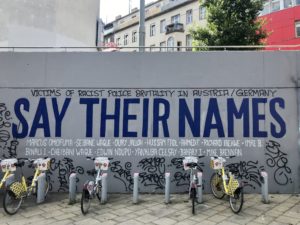
You’ve mentioned before that you’ve sustained lifelong injuries from the attack. Were you ever able to go back to your work as a PE teacher?
No, I wasn’t. I returned to the school after being injured, but I still had complications and I never recovered to the level I was at before the attack. As an athlete that’s something very detrimental, if you’re at a certain level and you can’t reach that level again, because of something that’s not even your fault, it’s entirely because of someone else’s actions. That really hurts.
How about the psychological consequences? Can you return to Vienna without being scared?
It wouldn’t say scared, but I’m definitely aware. I’ve always been aware, because of my background. But now I’m even more aware, I’m careful, I’m cautious. Whenever I’m in Vienna and I’m on the train, I always take a pause before I get off the train. I wait for about 5 seconds and check my surroundings, just in case. Because being blindsided like that is not something you want to relive.
In the weeks after the murder of Georoge Floyd, the issue of racially motivated police brutality and the “Black Lives Matter” movement have gotten a lot of attention. Do you think the protests can contribute to raising awareness for systemic racism long-term?
Definitely. One thing that really impresses me, is that there are a lot of young people and people from all backgrounds, all walks of life at these protests, not just black and brown people. These people are about change. I have friends in Vienna and there were sending me pictures of the Black Lives Matter protest with over 15000 people. That’s amazing, that makes me proud. A former student of mine told me she saw a girl at the protest that had a board with my name on it. That really touched me, that people remember my case. It’s so important for people to speak up, when they witness injustice. It takes one person to start something, to create a thunderstorm. I think the death of George Floyd touched a lot of people, especially because it was on video. I’m the same age as George Floyd and I’m really lucky to be alive.
The death of George Floyd has caused a global outcry, but many still think racism and police brutality are solely an American problem. What would you like to say to these people?
It’s definitely not just an American problem, this is a worldwide issue. Racism and police brutality happen everywhere. But when I first came to Austria, I wasn’t aware of the cases of police brutality that had happened before me. When that happened to me, I started reading articles about all the other black people who had had similar experiences in Austria. I think many people are afraid to talk about it. But you can definitely feel that change is happening. The entire world is making history right now, even in the middle of a pandemic. People are putting their lives at risk to stand up for what they believe is right. I hope that me speaking up about what happened to me changes someone’s life in a positive way or makes someone think different. Not wanting to learn about other cultures and feeling threatened by them is what creates systemic racism. You should never feel threatened by something different. I’m actually in the process of writing a book about my experience, that should be out at the beginning of next year and that I’m hoping will help educate the public about racial injustice.
The events of the past few weeks have also brought about vigorous discussions about the future of the American police. Many believe, the police is past reformation and slogans like “defund the police” or “abolish the police” are particularly popular on social media. What do you think needs to be done in order to contain and prevent police brutality in America, but also across the world?
I’m not for defunding the police, but there are some departments that have a lot of money and they should invest some of that money into the communities and into programs, so they can connect with the people. You have to know the people you’re around, you have to know your neighbors. If you manage to build a bond, that’s going to create less tension. When I was in elementary school, police officers would visit our school, give out stickers and talk about their job and we got to know each other. So I think some of that money should definitely be used to build programs to tie the people in the community together.
How can non-black people best act as anti-racist allies and show solidarity? What do you wish for from your white friends?
The most important thing, I think, is to stand together and to speak out if you see something wrong. Also record stuff! And support your black friends when they say “I’m going to this protest, come with me”. If someone who’s not black speaks out about these issues, other white people are going to be like “Wait a minute, there’s something really wrong here”. So step up and hold your friends accountable, when they say something wrong. At the Vienna International School, there are students from all over the world, but I think probably at most schools nowadays, even in Austria, there a lot of different nationalities. I think it’s so important to get to know people from other nationalities, to try to find out more about their culture, or to make an effort to learn their language. If you look at these protests, there are people from all backgrounds coming together, young, old, black, white. If you see so many different people standing up for something together, in so many different countries, then you know there’s something really wrong.
Weitere Informationen
„Justice for Mike Brennan“ auf YouTube:
https://www.youtube.com/channel/UC9rjx5bGvPRzMLJTEnBoCHg
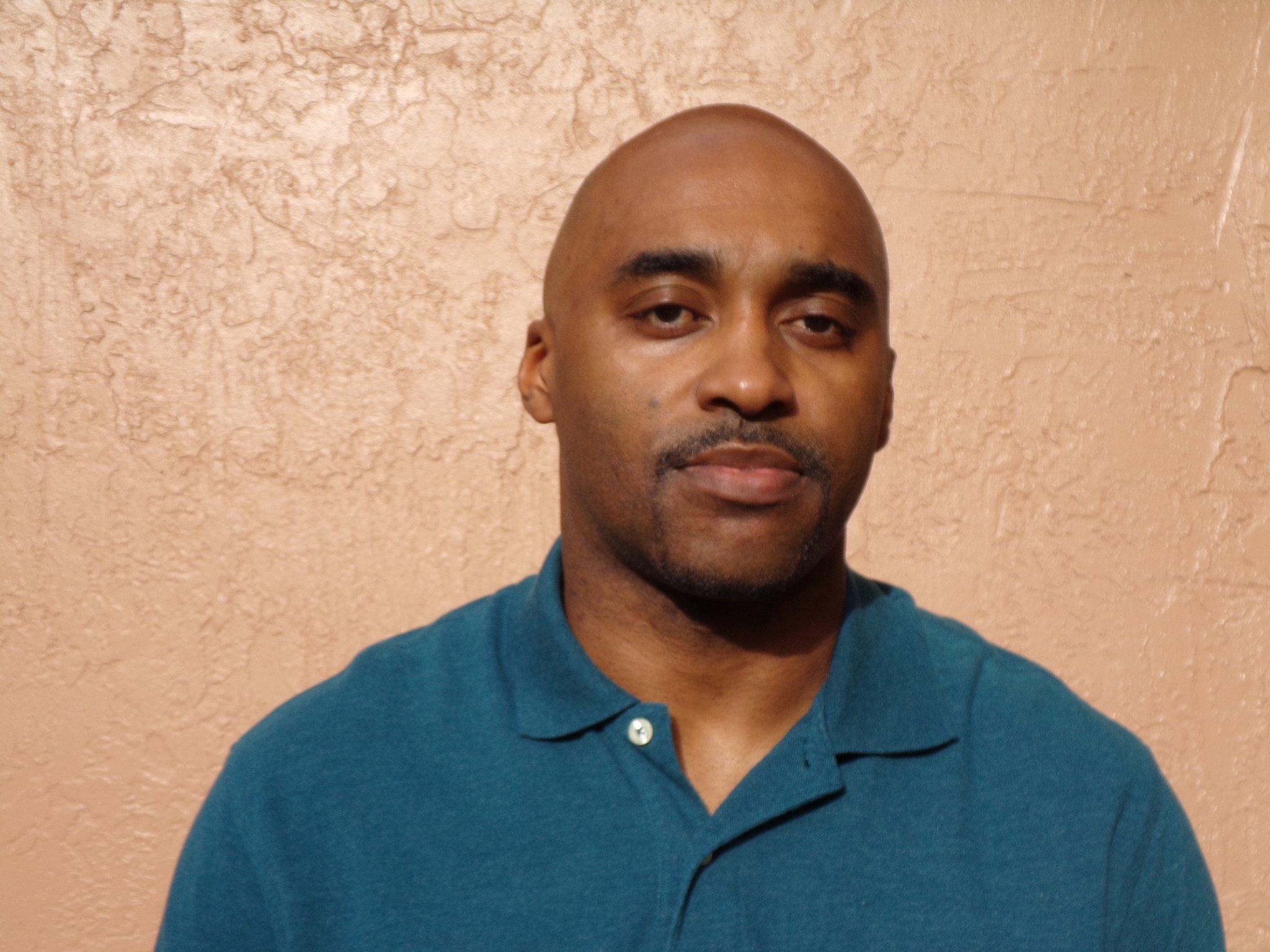

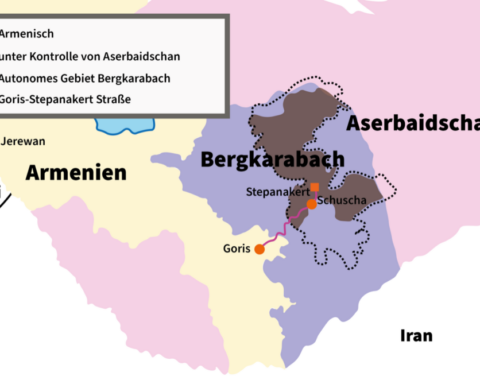
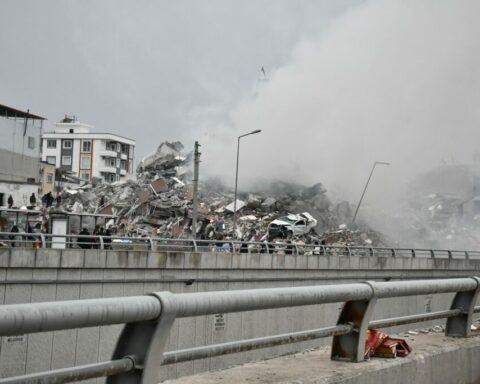
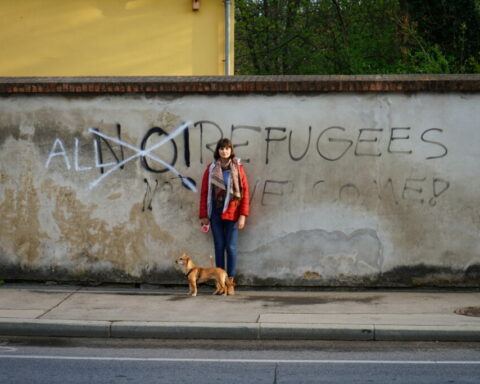
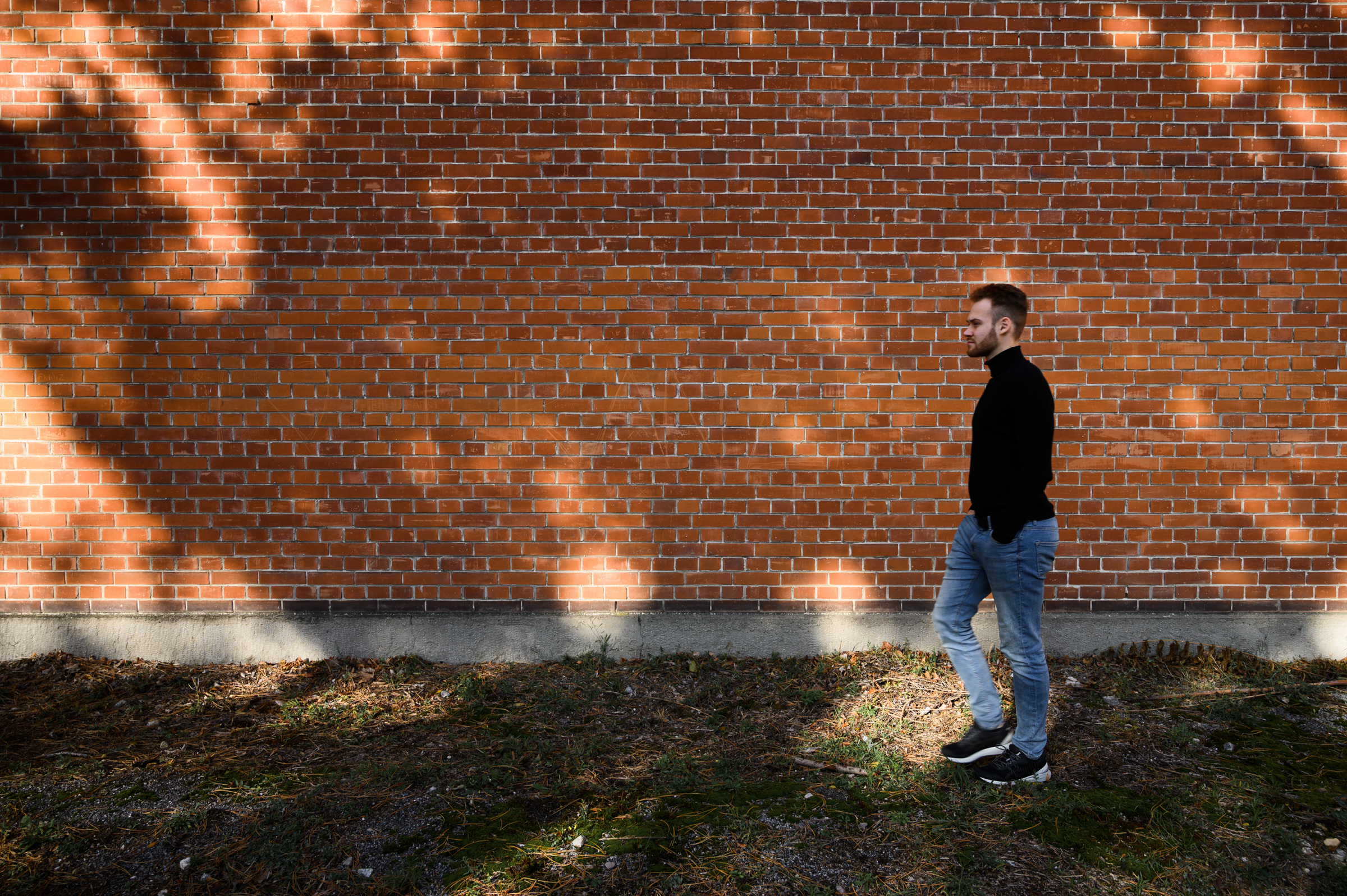
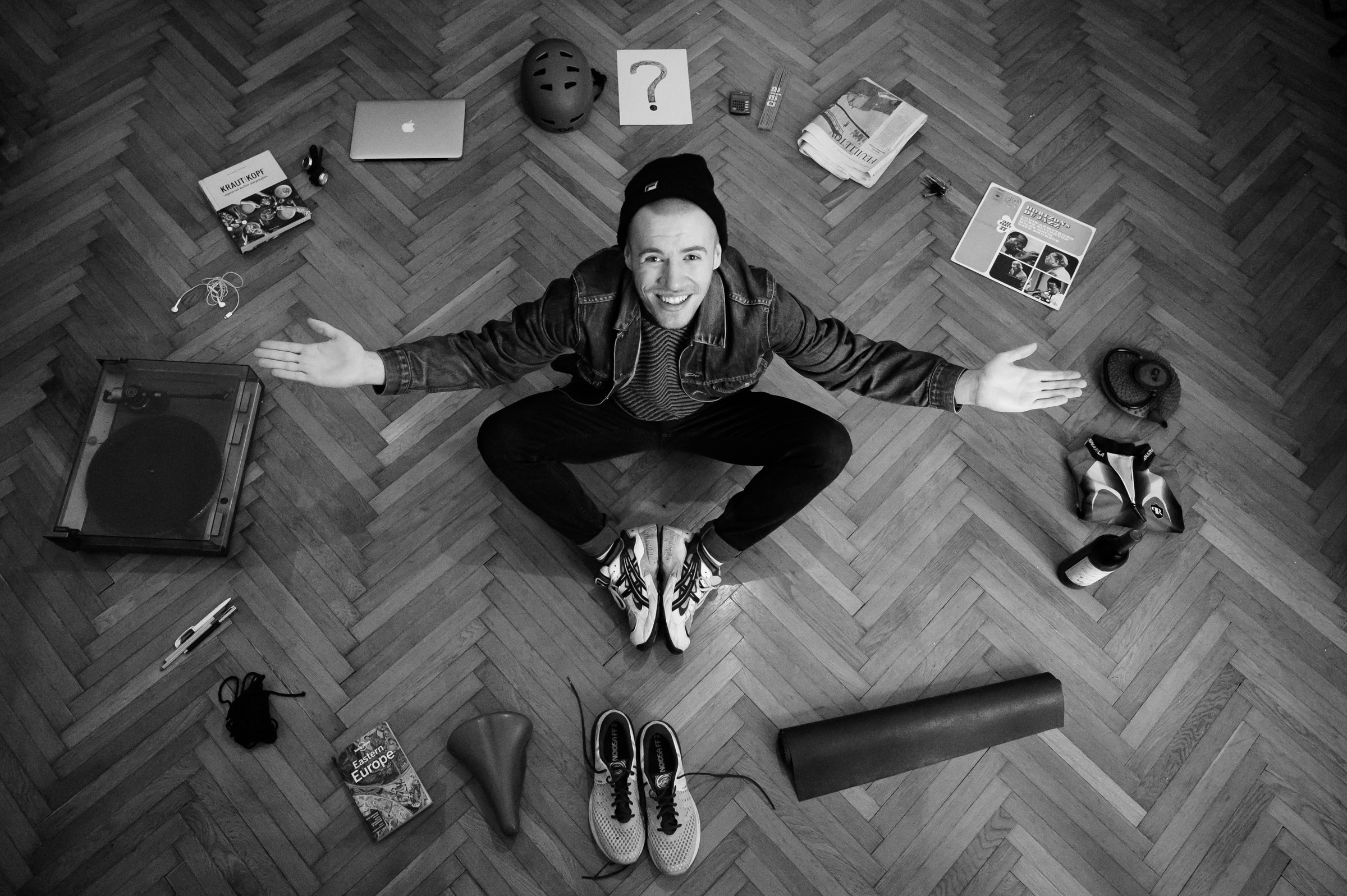
[…] Interview mit Mike Brennan, welcher Misshandlungsvorwürfe gegen die Österreichische Polizei erhebt […]